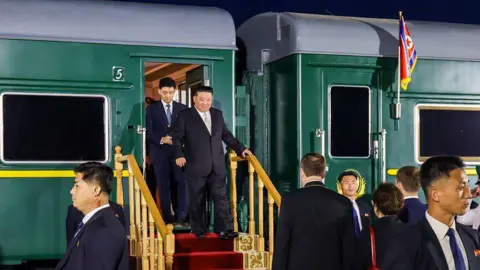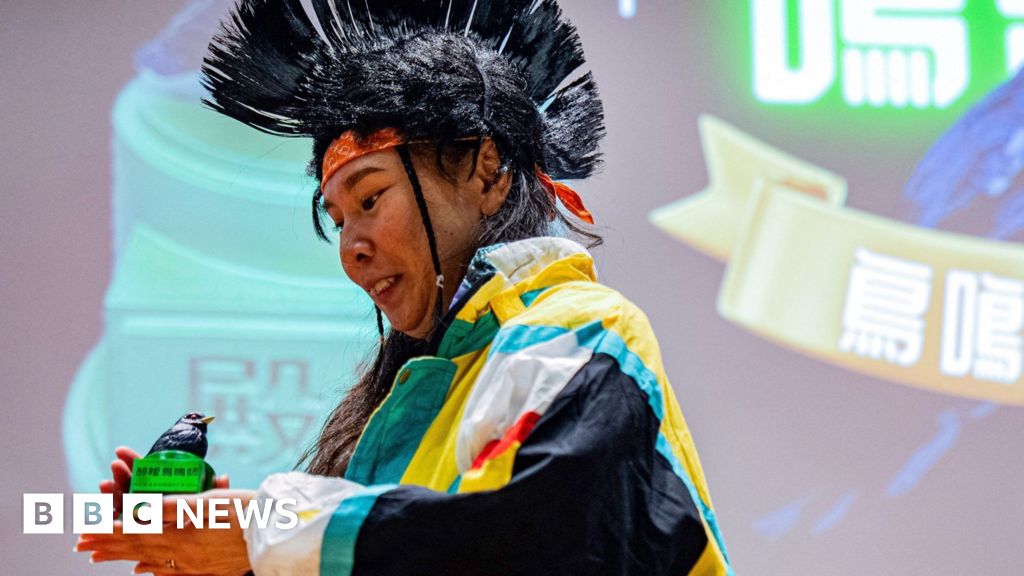Innes Tang has assumed the role of a vigilant informant in Hong Kong, reporting dozens of individuals to the police for what he perceives as national security violations. From the waving of colonial flags in shopping malls to selling protest-themed cakes, Tang asserts he's simply protecting his city under the controversial national security law (NSL). "We're in every corner of society, watching for anything suspicious," he tells the BBC.
Implemented in 2020 after mass pro-democracy protests, the NSL has been described as a tool that dampens free speech and promotes a culture of informing. The law prohibits actions deemed as secession, subversion, or collusion with foreign forces. Alongside it, Article 23 formalized further restrictions in 2022.
While many are perplexed and frustrated by these developments, Tang and his followers reportedly amassed nearly 100 reports to the authorities, claiming their actions have led to police inquiries and criminal charges. He built a capacity for community engagement, encouraging the public to report discontent. Yet, this grassroots movement raises questions about the implications of such vigilantism, where neighbors may turn against one another, echoing fears of relentless scrutiny.
The impact of the NSL is evident; over 300 arrests linked to national security offenses have been made since its passage, and an estimated 300,000 individuals have left Hong Kong permanently. Public figures, like Pong Yat-ming, an independent bookstore owner, have experienced consistent inspections based on anonymous reports, highlighting the chilling effect of the laws.
Despite Tang's claims of acting for the "silent majority," critics, including political scientist Kenneth Chan, argue that the culture of fear has overtaken the city, diminishing academic and personal freedoms while pushing voices of dissent further into the shadows. For many residents, the traditions of protests have no longer a place, raising the question of what identity Hong Kong retains in this new political climate.
Tang reflects on his previous aspirations for a united Hong Kong under China, attributing his motivations for reporting to an intense love for his city. "I want to restore balance after the 2019 turmoil," he notes. Yet, it is necessary to remember that the lines between patriotism and persecution are increasingly blurred.
The recent electoral reforms further complicate the political landscape, permitting only "patriots" to assume leadership roles, which many perceive as a way to eliminate dissent from governance. Critics describe pro-government figures as "verbal revolutionaries" who fail to represent the populace, questioning the integrity of policies passed without opposition.
As protests become nonexistent, Tang has ceased his local reporting efforts, claiming stability has returned. His gaze has shifted abroad, taking up representation roles for pro-Beijing groups and promoting narratives at international forums. In contrast, Chan remains in limbo, with friends imprisoned or exiled and uncertain of his future.
In a statement, Hong Kong's government expressed that national security is paramount, asserting its policies target a minimal minority while safeguarding the public's well-being. Amid the ongoing tensions, Tang's narrative serves as a stark reminder of a community grappling with a profound transformation, where security, identity, and humanity intertwine in complex and unpredictable ways.
Implemented in 2020 after mass pro-democracy protests, the NSL has been described as a tool that dampens free speech and promotes a culture of informing. The law prohibits actions deemed as secession, subversion, or collusion with foreign forces. Alongside it, Article 23 formalized further restrictions in 2022.
While many are perplexed and frustrated by these developments, Tang and his followers reportedly amassed nearly 100 reports to the authorities, claiming their actions have led to police inquiries and criminal charges. He built a capacity for community engagement, encouraging the public to report discontent. Yet, this grassroots movement raises questions about the implications of such vigilantism, where neighbors may turn against one another, echoing fears of relentless scrutiny.
The impact of the NSL is evident; over 300 arrests linked to national security offenses have been made since its passage, and an estimated 300,000 individuals have left Hong Kong permanently. Public figures, like Pong Yat-ming, an independent bookstore owner, have experienced consistent inspections based on anonymous reports, highlighting the chilling effect of the laws.
Despite Tang's claims of acting for the "silent majority," critics, including political scientist Kenneth Chan, argue that the culture of fear has overtaken the city, diminishing academic and personal freedoms while pushing voices of dissent further into the shadows. For many residents, the traditions of protests have no longer a place, raising the question of what identity Hong Kong retains in this new political climate.
Tang reflects on his previous aspirations for a united Hong Kong under China, attributing his motivations for reporting to an intense love for his city. "I want to restore balance after the 2019 turmoil," he notes. Yet, it is necessary to remember that the lines between patriotism and persecution are increasingly blurred.
The recent electoral reforms further complicate the political landscape, permitting only "patriots" to assume leadership roles, which many perceive as a way to eliminate dissent from governance. Critics describe pro-government figures as "verbal revolutionaries" who fail to represent the populace, questioning the integrity of policies passed without opposition.
As protests become nonexistent, Tang has ceased his local reporting efforts, claiming stability has returned. His gaze has shifted abroad, taking up representation roles for pro-Beijing groups and promoting narratives at international forums. In contrast, Chan remains in limbo, with friends imprisoned or exiled and uncertain of his future.
In a statement, Hong Kong's government expressed that national security is paramount, asserting its policies target a minimal minority while safeguarding the public's well-being. Amid the ongoing tensions, Tang's narrative serves as a stark reminder of a community grappling with a profound transformation, where security, identity, and humanity intertwine in complex and unpredictable ways.
















